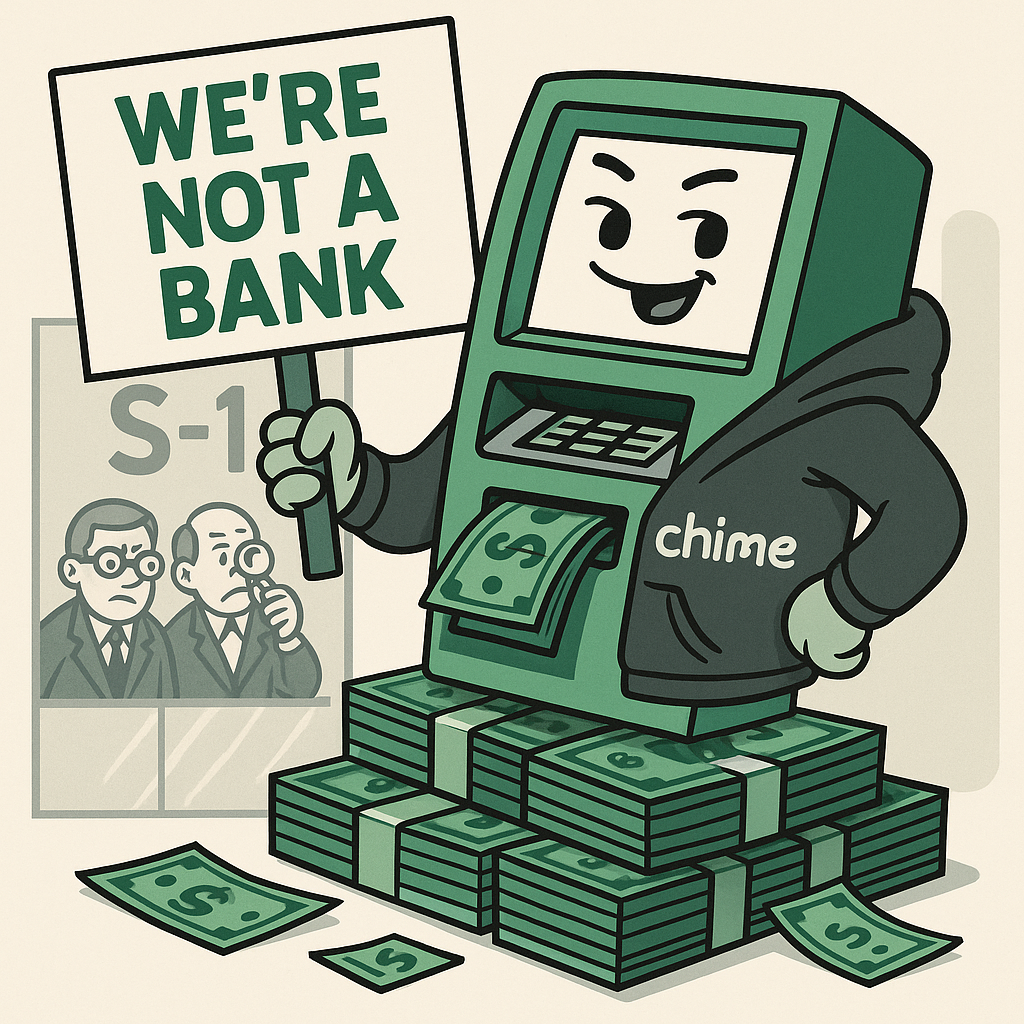Chime IPO: The Neobank That Prints Money Without Being a Bank
Chime filed to go public with an S-1 that’s equal parts alphabet soup and fintech fever dream.

Well folks, sharpen your highlighters and grab a triple espresso: Chime just filed its S-1, and it's everything you love about fintech IPOs—vague buzzwords, eye-watering metrics, and the distinct feeling that you're reading a product of AI trained on TechCrunch press releases and legal boilerplate.
You know an S-1 is serious when it takes three paragraphs to explain that, no, Chime is not a bank, it just does all the things you associate with banks. This is a neobank, which is like a bank except you’re not allowed to call it that, and your money lives in a UX mockup blessed by FDIC insurance by proxy. “We are a financial technology company, not a bank,” Chime proclaims, like a teenager who insists that vaping isn’t smoking.
But let’s get to the fun stuff: Chime is printing money. The company pulled in $1.2 billion in revenue in 2023 with $205 million in net income, proving that you can slap a green logo on a checking account and still live the American Dream—so long as you call it an “everyday financial experience.”
Apparently, Chime makes its money from interchange fees, i.e., a cut of every transaction you make. So if you’ve ever used your Chime debit card to buy gas station sushi, congratulations—you helped fund this IPO.
Now, Chime’s pitch to investors is classic fintech Mad Libs: financial inclusion, mission-driven growth, scalable infrastructure, and other terms that make your MBA professor nod approvingly. They even have a section on AI, because of course they do. If your S-1 doesn’t mention AI at least three times in 2025, are you even trying?
The S-1 also flexes some impressive metrics:
- Over 7 million monthly active users
- Over $6 billion in cash and equivalents
- And zero branches, because the only bricks in this business are for throwing at legacy banks.
But buried in all the success is the usual IPO theater: long-term vision, risk factors that include “the economy might exist,” and a reminder that this company could still be regulated into oblivion if someone in Washington wakes up and realizes that “neobank” sounds made up. Because it is.
In short, Chime’s S-1 is a fintech fever dream come to life—dense, jargon-filled, but undeniably juicy once you decode it. It’s not quite as bonkers as WeWork’s original filing (RIP, "elevating the world’s consciousness"), but it does carry that same delicious scent of Silicon Valley ambition wafting toward Wall Street cash.
So the next time someone asks you what a neobank is, just say this:
It’s a tech company that looks like a bank, acts like a bank, earns money like a bank… but don’t you dare call it a bank.




